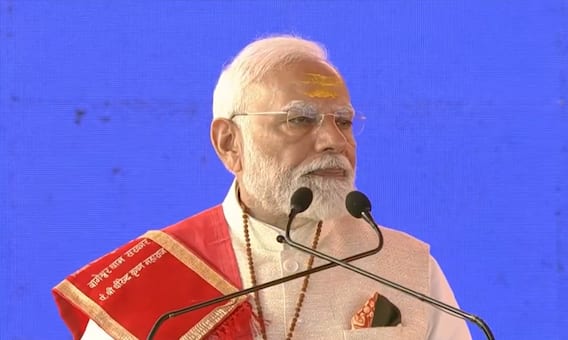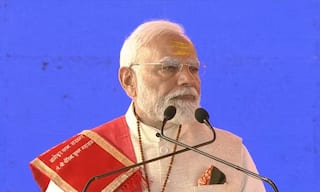People In Pakistan Store Cooking Gas In Plastic Balloons Amid Economic Crisis. WATCH
As strange as it may sound, Pakistanis in Khyber Pakhtunkhwa are stockpiling LPG in plastic bags as dealers are curtailing supplies due to a lack of cooking gas cylinders.

Under the weight of a collapsing economy, the Pakistani government has failed to provide its people with basic necessities, forcing individuals to rely on plastic bags to meet their LPG (cooking gas) demands.
As shocking as it may sound, Pakistanis in the Khyber Pakhtunkhwa region are storing LPG in plastic bags since a shortage of cooking gas cylinders has prompted dealers to restrict supply. According to local media reports, people in Khyber Pakhtunkhwa's Karak area have been without gas connections since 2007, while Hangu city has been without gas for the past two years.
In social media videos, people can be seen storing gas in plastic bags, however, the videos cannot be independently verified by ABP Live.
In Pakistan, the practice of using gas packed in plastic bags instead of cylinders for cooking has increased. Gas is sold by filling bags inside the shops connected to the gas pipeline network. People use it in the kitchen with the help of a small electric suction pump.#pkmb pic.twitter.com/e1DpNp20Ku
— R Singh...🤸🤸 (@lonewolf_singh) December 31, 2022
Gas vendors use a compressor to load LPG into a plastic bag before sealing the opening with a nozzle and valve. It takes around an hour to fill the plastic bag with three to four kgs of gas, the local media reports stated.
These plastic bags are filled with natural gas at shops connected to the country's gas pipeline network, according to DW.com. Vendors use a nozzle and valve to close the bag's opening tightly to prevent leakage. The bags are then sold to individuals who use the gas using a small electric suction pump. Filling three to four kilogrammes of gas in plastic bags takes around an hour.
Meanwhile, the Pakistan government raised the prices of wheat flour, sugar, and ghee for sale through the Utility Stores Corporation (USC) with immediate effect to mitigate the impact of untargeted subsidies, reported The Dawn.
"Benazir Income Support Programme (BISP) beneficiaries would be exempt from the price increase, while the limit for subsidised purchases from the USC has also been curtailed," as stated in the report.
Under the new rates, the price of sugar has been raised to 89 per kg from 70 per kg, a 27 per cent rise, while the price of ghee has been raised to 375 per kg from 75 per kg. Wheat flour prices have also been raised to 64.8 per kg from 40 per kg, indicating a 62 per cent rise.
(With Inputs From Agencies)
Trending News
Top Headlines












































